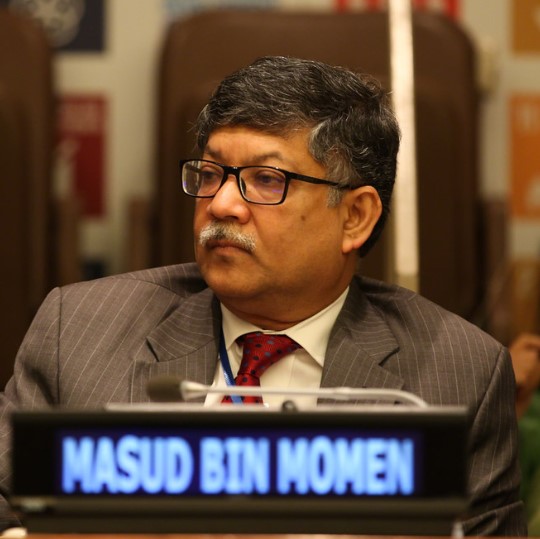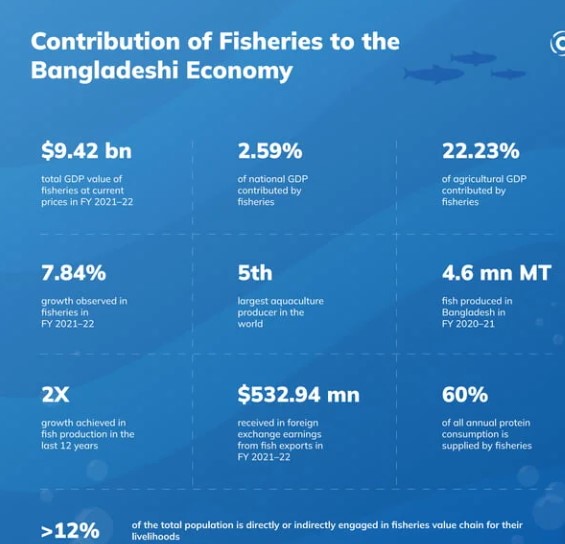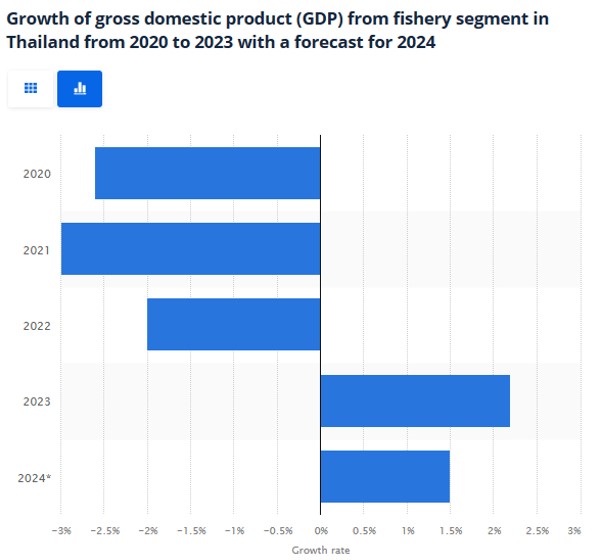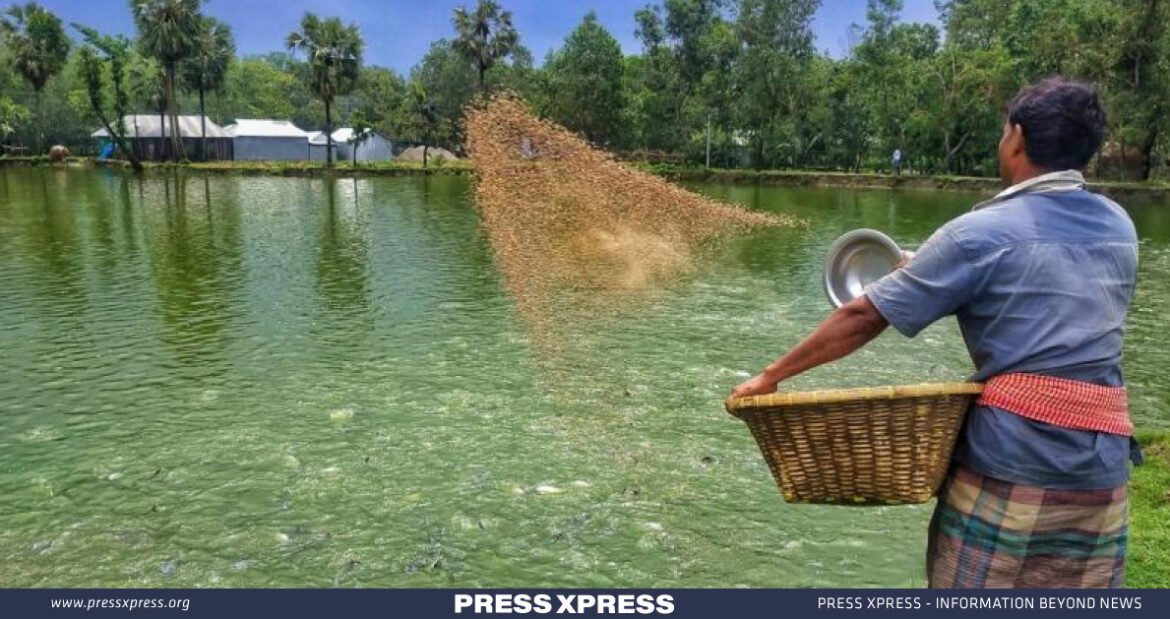Key Highlights:
- Bangladesh’s fisheries sector contributes approximately $9.42 billion to the country’s GDP and employs around 18 million people
- Bangladesh can improve its fishery management and conservation by implementing a national plan, creating marine protected areas, and enhancing the monitoring, control, and surveillance (MCS) system to fight Illegal, unreported and unregulated (IUU) fishing
The fisheries sector plays a critical role as a source of food, income, and livelihood for millions of people in Bangladesh and the ASEAN region. Bangladesh stands out as one of the world’s leading producers of fish and aquaculture products, ranking 5th globally with a total production of 2.6 million tons. This sector contributes approximately $9.42 billion to the country’s GDP and employs around 18 million people.
You Can Also Read: COLD STORAGE FACILITIES REQUIRES POLICY TO SUPPORT FOOD-CHAIN
Despite its significance, the fisheries sector faces several challenges. To tackle these issues and promote sustainable development, Bangladesh has recently initiated dialogues and activities with ASEAN countries.
ASEAN is a regional organization comprising 10 countries, namely Brunei Darussalam, Cambodia, Indonesia, Lao People’s Democratic Republic, Malaysia, Myanmar, Philippines, Singapore, Thailand, and Vietnam. ASEAN has a rich and diverse fisheries and aquaculture sector, which accounts for about a quarter of the global fish production and trade.
On 3rd March 2024, the Foreign Secretary of Bangladesh, Masud Bin Momen, inaugurated the ASEAN-Bangladesh international workshop titled “Towards Sustainable Aquaculture: An ASEAN Bangladesh Initiative on Antibiotic Stewardship, Good Practice, and Cluster Farming” in Mymensingh.
“Sharing best practices would be the key for Bangladesh and the ASEAN countries to strengthen collaboration in sustainable aquaculture and fisheries sector.”
– Foreign Secretary Masud Bin Momen

The workshop is part of the ASEAN-Bangladesh Cooperation Project on Fisheries, funded by the Bangladesh government, and aims to foster collaboration in areas such as antibiotic stewardship, good practice, and cluster farming in aquaculture. Additionally, it focuses on traceability, certification, and market access for fishery products.
Furthermore, the project supports Bangladesh’s aspirations to become a Sectoral Dialogue Partner of ASEAN, enabling more comprehensive and strategic engagement with the regional bloc.

How does Bangladesh compare with ASEAN countries in Fisheries and Aquaculture?
Bangladesh exhibits a notably higher per capita fish consumption compared to most ASEAN countries, standing at 62.6 kg per year versus the regional average of 24.5 kg per year. This underscores the significant role of fish as a primary protein and nutritional source for the Bangladeshi populace.
Regarding export value, Bangladesh holds the 9th position among ASEAN nations with US$ 0.6 billion, juxtaposed with the regional total of US$ 25.4 billion. Key export destinations for Bangladesh include the European Union, the United States, China, and Japan, with primary export commodities being frozen shrimp and prawns, frozen fish, and dried fish.
In terms of aquaculture production, Bangladesh ranks 4th among ASEAN countries, generating 2.5 million tons compared to the regional output of 18.4 million tons. Predominant aquaculture species in Bangladesh comprise Nile tilapia, hybrid catfish, silver barb, giant river prawn, and carp. Bangladesh possesses considerable potential to elevate its aquaculture production due to abundant water resources, conducive climatic conditions, and heavy domestic demand.
Nonetheless, the sector confronts various challenges, including insufficient quality seed and feed, inadequate infrastructure and extension services, subpar disease management, and restricted access to finance and markets.
| Category | Bangladesh | ASEAN Average |
| Per Capita Fish Consumption | 62.6 kg/year | 24.5 kg/year |
| Export Value | $0.6 billion (9th in ASEAN) | $25.4 billion |
| Aquaculture Production | 2.5 million tons (4th in ASEAN) | 18.4 million tons |
What can Bangladesh learn from ASEAN countries in fisheries and aquaculture?
Thailand is a leading example of a successful and diversified fisheries and aquaculture sector among the ASEAN countries. It ranks 2nd in the region, after Indonesia, in fish and aquaculture production, with 3.1 million tons. The sector’s GDP increased by 2.2% in 2023 and it provides employment to about 1.6 million people. Thailand is also one of the top exporters of fish and seafood products in the world, with a total export value of US$ 6.5 billion.
Thailand has achieved this through various policies and strategies, such as:
- Encouraging sustainable aquaculture practices, such as integrated farming, organic farming, and good aquaculture practices (GAqP), to minimize environmental impacts and improve productivity and quality.
- Using innovative technologies, such as recirculating aquaculture systems (RAS), biofloc technology, and digital platforms, to increase efficiency, traceability, and competitiveness of the sector.
- Improving the management and conservation of fishery resources, such as implementing the national fisheries management plan, creating marine protected areas, and fighting illegal, unreported, and unregulated (IUU) fishing.
- Increasing the value addition and market access of fishery products, such as developing standards and certification schemes, diversifying products and markets, and joining regional and global trade agreements.

Bangladesh can gain from adopting GAqP and RAS in its aquaculture sector, as these can enhance the quality and safety of the products, lower the use of antibiotics and chemicals, and boost the resilience to climate change and disease outbreaks.
Moreover, Bangladesh can also improve its fishery management and conservation by implementing a national plan, creating marine protected areas, and enhancing the monitoring, control, and surveillance (MCS) system to fight Illegal, unreported and unregulated (IUU) fishing.
In conclusion, Bangladesh and the ASEAN region share a vital reliance on the fisheries and aquaculture sector for food security, economic sustenance, and livelihoods. From ASEAN exemplars like Thailand, Bangladesh can glean insights into implementing sustainable practices, leveraging technology, enhancing resource management, and expanding market access. By developing such cross-regional exchanges and adopting best practices, Bangladesh stands poised to reinforce its fisheries and aquaculture sector for enduring prosperity and sustainability.


